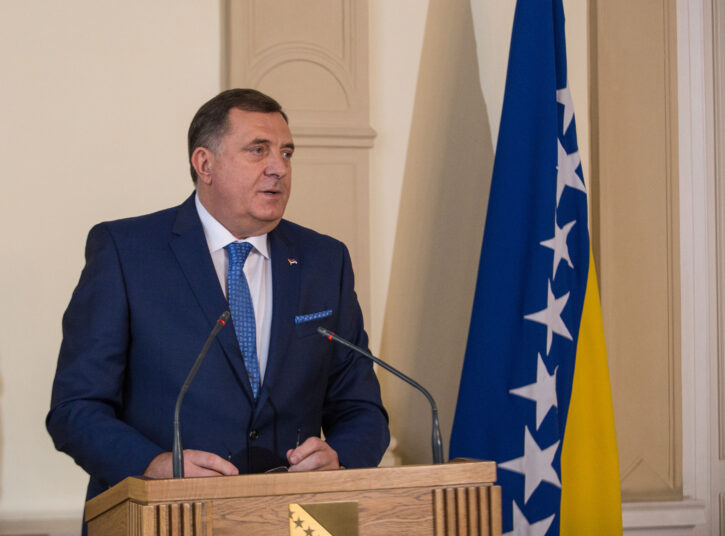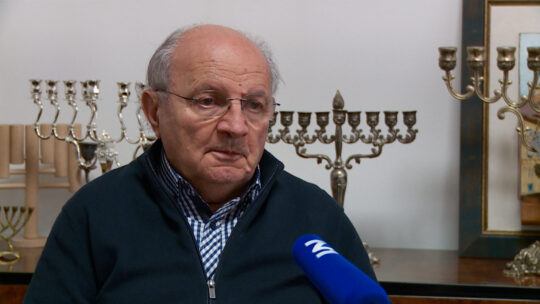
Reacting to the accusation the newly inaugurated Bosnian Serb member of the Presidency made against international officials in Bosnia, the office of the country’s foreign administrator said on Thursday that it is acting according to its mandate as defined by the 1995 peace agreement.
Milorad Dodik, who has for years been at odds with numerous western officials serving in Bosnia, slammed Bosnia’s top international official, Austrian diplomat Valentin Inzko, and his predecessors during his inaugural speech this week, accusing them of interventionism and of violations of the Dayton Peace Agreement that ended the 1992-95 war.
“The way it is now, Bosnia and Herzegovina has significantly moved away from the text of the Dayton Agreement and its most important Annex – the Bosnian Constitution,” Dodik said. “It is not going down a good path.”
He said Bosnia is not only regressing, but going toward its “factual disappearance.”
“If we continue down this path, it would be a continuation of the current agony which was in a good part aided by the so-called international community, more specifically, part of it,” he said, referring to the Office of the High Representative (OHR).
According to the peace agreement, the High Representative is in charge of making sure the civil aspect of the agreement is fully implemented. He answers and receives orders from the Peace Implementation Council, a body put together mainly by ambassadors of countries that signed the Bosnian peace agreement as guarantors.
Additionally, his power was reinforced by the so-called Bonn powers with which he can fire Bosnian officials, including presidents, if they violate the Constitution or any other provision of the agreement.
The High Representative can also dismiss and impose laws, although none of those powers have been used for years as Bosnia was heading toward EU membership and reforming to meet its standards.
Those standards, however, are in many aspects in contradiction with the provisions of the peace agreement and High Representatives have, in aiding the country’s EU path, been calling it a switch “from Dayton to Brussels.”
Dodik, as well as other nationalists in the country, never liked those changes. The new Bosnian Serb Presidency member called them and the entire office of the High Representative “unconstitutional.”
But he also slammed other foreign diplomats serving in Bosnia.
“Strongly supported by certain ambassadors in Sarajevo, the OHR has breached international law and the international agreement with no accountability,” Dodik said, adding that the country’s Constitutional Court, which contains foreign judges, has backed the “unconstitutional and unjust activities by the High Representatives” and approved the outvoting of Croat and Serb Constitutional Court judges.
“It’s time to change this,” he declared.
The OHR told N1 it was acting according to the Constitution, which is part of the peace agreement, as well as according to UN Security Council resolutions.
“The High Representative expects of all newly elected officials to fully respect and implement the General Framework Agreement for Peace in Bosnia and Herzegovina in its entirety, and to respect the corresponding resolutions by the UN Security Council,” the OHR said in a written statement to N1.
“The steering board of the Peace Implementation Council has several times reminded all parties about their duty to completely respect the General Framework Agreement for Peace in Bosnia and Herzegovina, all of its annexes, and decisions of the High Representative,” it said.
“In this sense, we are bringing to attention the fact that members of Bosnia’s Presidency have sworn that they will implement the Dayton Peace Agreement in its entirety, including Annex X,” OHR said, referring to the Annex which defines the role of the High Representative in Bosnia.




